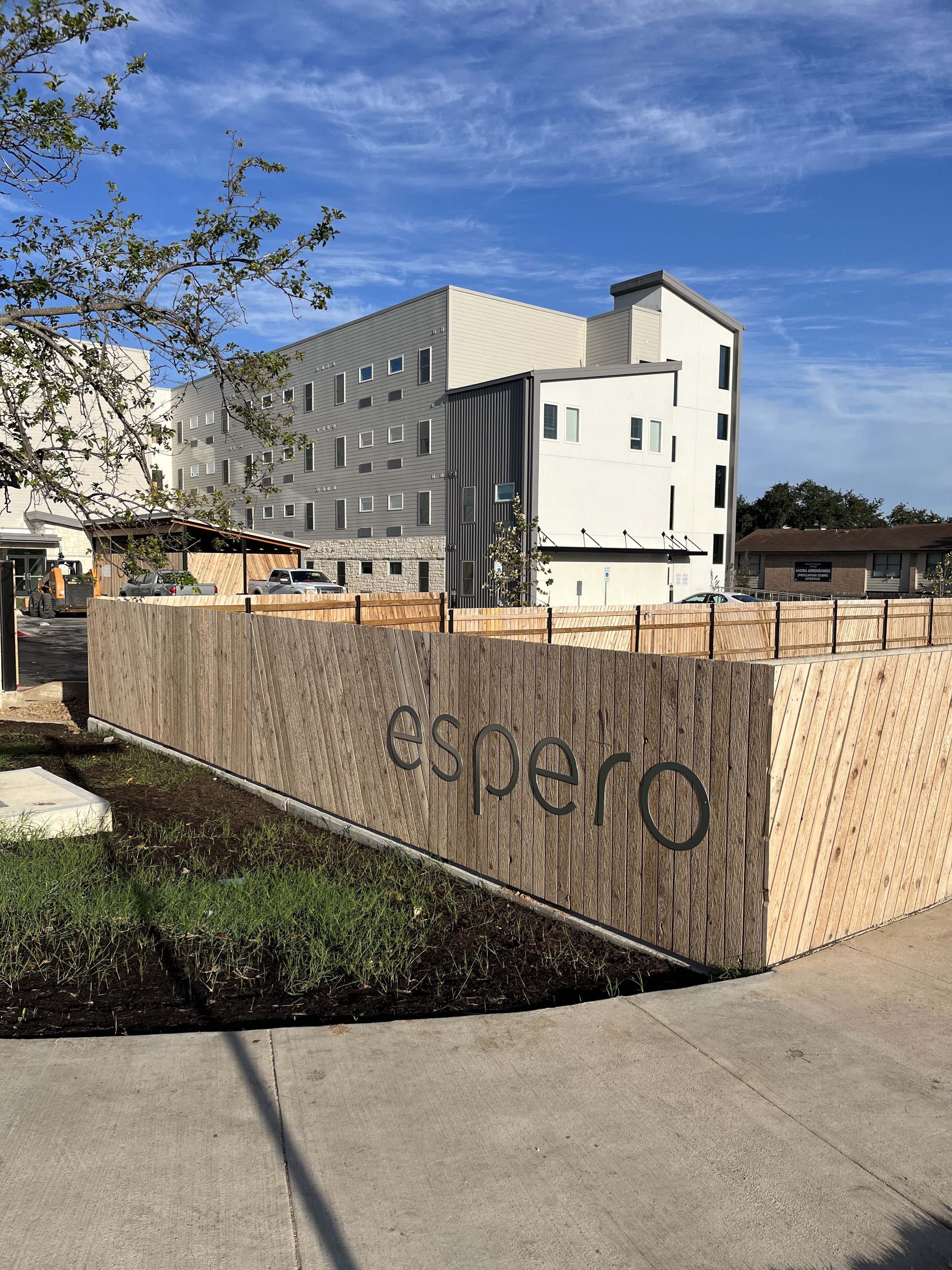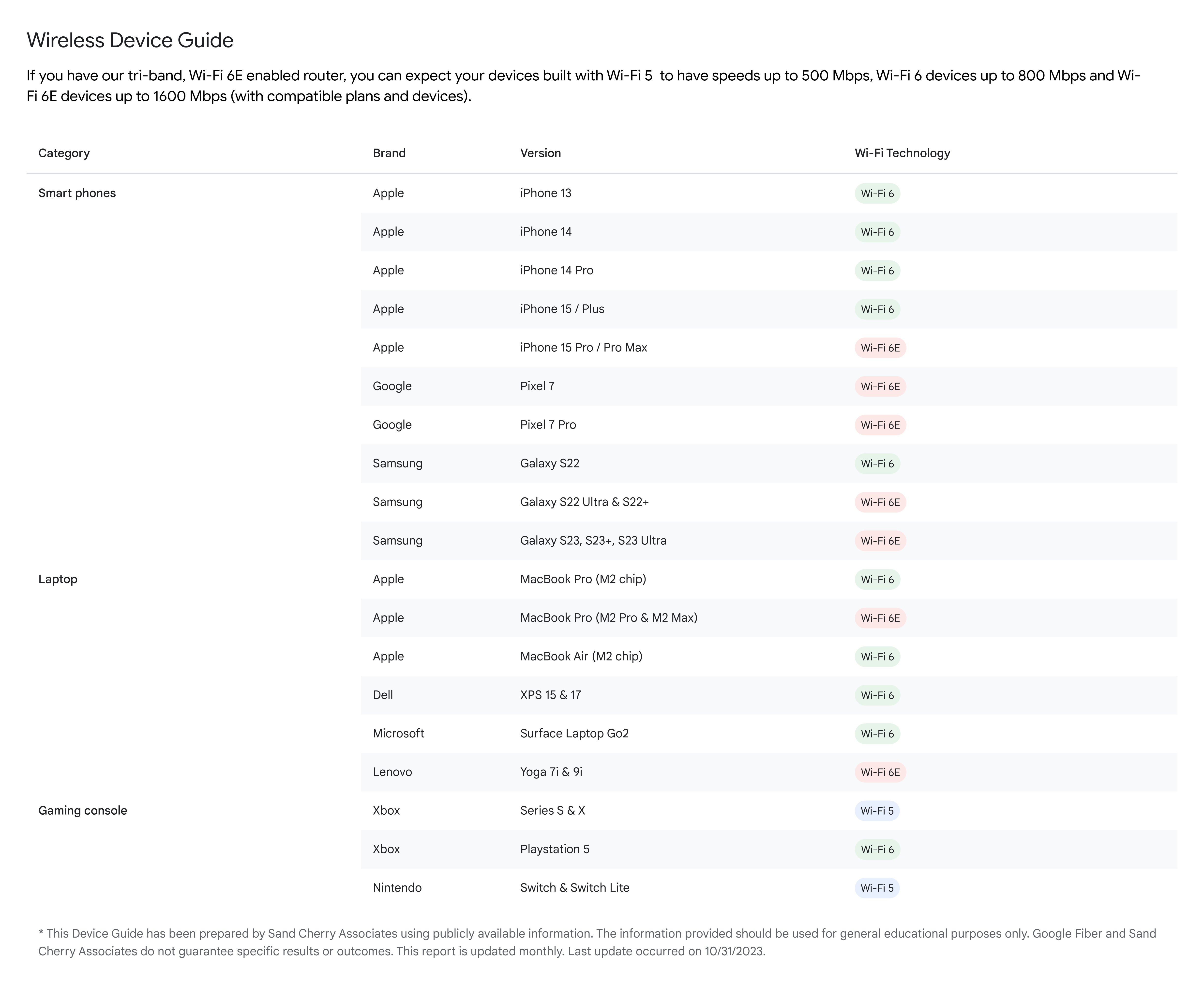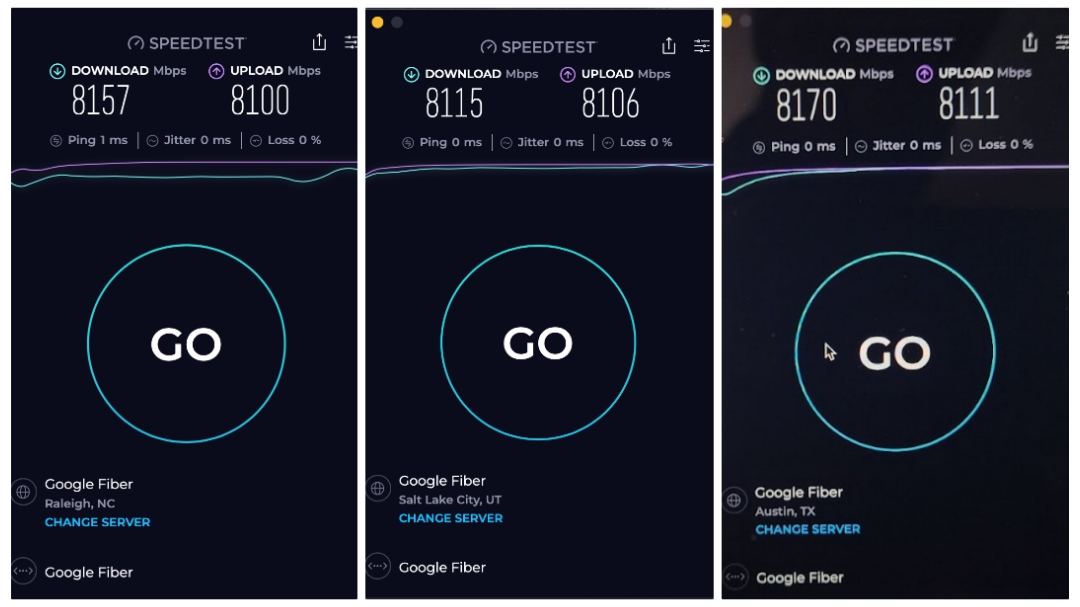Category Archives: Google Fiber
Speaking out for Digital Inclusion at Net Inclusion Conference 2024
Source: Google Fiber Blog
Nevada is on the board
With this announcement, we have active projects underway in all five of the states we set our sights on back in August 2022. Clark County covers much of the Las Vegas metro area, and is just the first of GFiber’s projects in the area. We’re already working on engineering planning in Clark County, and construction will get underway towards the end of this year with the goal of serving our first customers by mid-2025.
If you are in the Las Vegas metro area and want to keep up with what’s happening in Clark County and beyond, you can sign up here for updates on construction and service availability. We’re betting big in Nevada.
Posted by Ashley Church, West Region General Manager

Source: Google Fiber Blog
KC Digital Drive – Digital Dignity and More Choices for Underserved Residents in Kansas City
Google Fiber partners with organizations working to make digital equity a reality in the communities we serve. KC Digital Drive was mobilized to combat the digital divide for underserved residents in Kansas City. Brynna Darley of KC Digital Drive shares the organization’s work towards the region’s digital transformation with an emphasis on digital choice and dignity, as well as support broadband connectivity and digital inclusion.
KC Digital Drive is an organization that focuses on civic engagement in digital inclusion and emerging technology. To do so, we offer several programs to help combat the digital divide in the bi-state Kansas City region. We leverage the talents and resources available to us in the surrounding community. Notably, the last two years of our collaboration with Google Fiber found us on the receiving end of 400 Chromecasts.
Wanting to make the best of this opportunity, Peter Smith, an AmeriCorps Vista member working with KC Digital Drive, got creative and developed a new educational workshop that illustrated the power of switching from cable TV to streaming services (like added flexibility and more money in your pocket each month). He developed a curriculum and connected with partner organizations to assess the demand for this new Cut the Cord (CTC) Workshop.
Each one-hour session focuses on:
Setting up and using Chromecast
Navigating the streaming landscape of free and paid services
Finding reliable home internet at speeds suitable for their streaming needs
Since introducing this curriculum in April of 2023, we’ve distributed more than 325 Chromecasts donated by GFiber, across 19 events with nine different partner organizations, including Phoenix Family, The Black Family Technology Awareness Association, and Jewish Family Services.
In October of last year, we integrated the workshops into our class schedule at the Digital Services and Support Center at the LAMP campus — a digital commons for training and support in Kansas City historic east side that serves low-income neighborhoods and residents.
One workshop attendee, Rodolfo ‘Rudy’ Mesa, is a perfect example of how transformative one device can be. Mesa is 82 years old, living in Kansas City but originally from Wyoming.
“Living on a fixed income, cable is a cost just like anything else, like a cellphone,” he said. He learned about our Cut the Cord workshops through outreach from our Digital Skills Trainer, Carol Meyers.
Mesa shared that being a nerdy type of guy, access to streaming content and entertainment with his new Chromecast allows him to explore interests of history, nature, civilization, different animals and people, and the planet and science.
We have been so pleased to see the demand for these workshops grow as our partners and community engage with options that boost equity and understanding of the technology and digital skills that fuel such a big part of daily life. We know that cable subscriptions can be expensive, and we are delighted to see these free devices help hundreds of households save money each month.
To learn more about Cut the Cord workshop and the digital inclusion ecosystem in Kansas City, subscribe to our Kansas City Regional Digital Inclusion Newsletter and visit us online at kcdigitaldrive.org.
Posted by Brynna Darley, State Digital Inclusion Coordinator
Want more content like this in your inbox? Subscribe to get the GFiber blog in your email.
Source: Google Fiber Blog
CES 2024: Wi-Fi 7 and the future of connectivity

This news of the next generation of Wi-Fi definitely made waves at CES 2024. The event buzzed with announcements of lots of new devices that support Wi-Fi 7 — from smartphones, to smart home devices, to more innovative devices — the industry has begun gearing up to embrace the power of Wi-Fi 7. Google Fiber is no exception — we’re excited about the Wi-Fi Alliance’s certification of Wi-Fi 7 because it opens the door to even more multi-gig speeds and reduced latency over Wi-Fi networks.

The biggest innovation with Wi-Fi 7 is Multi-Link Operation (MLO), which allows packets to be sent over multiple frequencies simultaneously. Prior generations of Wi-Fi only used one frequency band at a time.This means that one device which supports Wi-Fi 7 can talk to an access point over multiple radios and frequency bands at the same time.
Wi-Fi 7 devices can select from either a 2.4, 5, or 6 GHz band and are able to choose the Wi-Fi band that offers the most efficient and reliable path to the router. The result is lower latency and improved reliability, resulting in a better experience for internet users.
We know that great wireless internet is key to our customers’ in-home experience, so we spend a lot of time working on making it better (even when it’s already good). In 2023, we deployed Wi-Fi 6E routers with tri-band connectivity, built to handle more devices with fewer slowdowns.
Our focus and commitment to delivering speed to the home and in the home is exactly why we’re including a Wi-Fi 7 router for GFiber Labs 20 Gig customers. Wi-Fi 7 is a longer-term solution, if you’re thinking about purchasing a new smartphone, TV, tablet, computer, or other devices in 2024, you may want to consider whether they are Wi-Fi 7 compatible. You can have the latest high-powered router but the compatibility of your Wi-Fi devices also impacts your online experience. Our device guide can help determine Wi-Fi compatibility for your devices.
CES exhibitors unveiled cool new devices and products that support Wi-Fi 7 and are coming soon. Dell introduced two new laptops — the Dell XPS 16 laptop and the Dell Alienware M15 R2 gaming laptop, which are expected to be released in Q1 '24. Samsung announced its Galaxy S24 Ultra smartphone, and Acer announced a new gaming router; the Wi-Fi 7 Predator Connect X7 5G CPE, which offers dual connectivity (an ethernet network and 5G service).
Wi-Fi Alliance’s certification of Wi-Fi 7 ushers in a host of new possibilities, and GFiber is committed to making sure that our customers can harness the speed of their internet. Expect more from us soon to help make your in-home internet even faster.
Posted by Ishan Patel, Product Manager

Want more content like this in your inbox? Subscribe to get the GFiber blog in your email.
Source: Google Fiber Blog
MLK Day and the pursuit of equitable internet access
As Martin Luther King Jr. Day approaches, we are reminded of the ongoing pursuit for equity, justice, and the civil rights leader’s legacy and vision of a world with equal access to opportunities. Google Fiber aspires to be a part of this dream, by helping to bridge the digital divide and foster inclusivity in our increasingly connected world.
Everyone deserves fast, reliable internet at an accessible price, and the ability to put that internet connection to use - to connect to opportunity. We’re grateful to work with many organizations across the country that put that principle to work every day, helping their clients and constituents get more out of their lives, both online and beyond.
Here are a few ways our incredible community partners are marking this important day across the country:
Austin, Texas: The Austin Area Heritage Council’s Annual MLK Oratory Competition showcases fourth to sixth-grade students from local schools delivering speeches centered on Dr. King's dream.
Kansas City, Kansas: The Metropolitan Community College Martin Luther King Jr. Scholarship Luncheon, provides 5 MCC recipients with a full-tuition scholarship for one year.
Huntsville, Alabama: 2024 MLK Unity Breakfast hosted by The Delta Theta Lambda Education Foundation supports scholarships, leadership development, and training for exceptional students.
Atlanta, Georgia: 2024 MLK Days of Service and the MLK Sunday Supper are events to get the local community volunteering for projects that support 50 nonprofits and schools. This week, volunteers from the GFiber team served at C.H.O.I.C.E.S. Mobile Food Pantry in Atlanta, GA, packed meal bags and prepared for meal distribution.
Research Triangle Area (Raleigh-Durham), North Carolina: United Way of the Greater Triangle’s MLK Day of Service supports a full day of health programming at the Boys & Girls Club Raleigh.
Charlotte, North Carolina: YMCA of Greater Charlotte’s 30th Annual MLK Holiday Breakfast celebrates the life and legacy of Dr. Martin Luther King Jr. The GFiber local team will also volunteer in a MLK day of service at Samaritans Feet.
GFiber is proud to be a small part of these efforts, and others, working towards a more equitable and just world.
Of course, there is still more work to be done. We will continue to push forward to make the internet more accessible and to help others harness the power and opportunity of the internet. You can help too! One small way to act right now — the Affordable Connectivity Program helps make high speed internet available to millions of US households through a $30 a month subsidy, but this program will end in April 2024 unless Congress acts to allocate additional funding. There is a bill before Congress to extend funding for this critical program. Take a moment to let your Congresspeople add your voice on the Affordable Connectivity Program Extension Act of 2024 to keep that connection strong for everyone.
Subscribe to get the GFiber Blog in your email.
Posted by Jess George, Head of Digital Equity & Community Impact
Source: Google Fiber Blog
Get the GFiber Blog in your email
Source: Google Fiber Blog
Caritas of Austin: Alleviating Homelessness and Creating a Connected Community
Source: Google Fiber Blog
Wi-Fi Focus: How to Get the Best Wi-Fi On Your Devices
Understanding your Wi-Fi technology and how it was built to support your devices is the key to getting the most out of them. Why? Because many of the Wi-Fi enabled devices in your home were built on a Wi-Fi standard, which impacts the Wi-Fi speeds you'll get.
What’s a Wi-Fi standard?
A Wi-Fi standard is a set of rules created by the The Institute of Electrical and Electronics Engineers (IEEE). The IEEE is the world's largest technical professional organization that defines how Wi-Fi devices communicate with each other. In short, it’s the system your devices use when connecting wirelessly. There are many different Wi-Fi standards, also called Wi-Fi technologies. Some standards you may be familiar with are Wi-Fi 5, Wi-Fi 6, Wi-Fi 6E and the soon-to-launch, Wi-Fi 7. Each new Wi-Fi standard is faster and more efficient than the previous one. (That’s why older devices may not go as fast as newer ones.)
Want to see what we’re doing with Wi-Fi 7? Check out our demo
How do Wi-Fi standards impact devices?
Some devices only support certain standards of Wi-Fi technology. So when you're shopping for a new Wi-Fi router, it's really important to make sure that it supports the Wi-Fi standard your devices or future devices are enabled for. For example, if you have a phone that supports Wi-Fi 6 or 7, you'll want to get a router that also supports those standards so you can take advantage of faster speeds and better performance. Making sure that your devices’ technology is compatible with your router technology will help you utilize the fastest Wi-Fi speeds available and avoid lag times.
Want to know how fast your devices can go?
Posted By Sydney Lauer, Product Strategy Analyst
Source: Google Fiber Blog
Google Fiber’s fastest year ever — to the home, in the home, and everywhere in between
8 Gig Now Available in Utah, North Carolina’s Triangle region, and Austin, Texas
At Google Fiber, delivering a fast, reliable internet experience has always been at the core of what we do, and that’s never been more important. Whether you’re working from home or playing a multi-player game or using it to connect multiple devices in the home, speed matters. That is why GFiber spent 2023 focused on delivering speed to the home and in the home. We made investments in our network, in the equipment we offer customers, in enhanced quality standards for our technicians, and much more.
Some of these efforts have been very public — like our GFiber Labs 20 Gig + Wi-Fi7 project or our efforts to make faster speed plans available to our customers. In early 2023, we began rolling out 5 Gig and 8 Gig internet offerings as we updated our network in each city to XGS-PON. When we said that a product was available in a city, we wanted to make sure it was available to everyone in our service area there. As of today, more than 75% of our residential customers can get 5 Gig and/or 8 Gig.
The response from our customers has been amazing and we’re very proud at the speed at which we’re making these network-wide upgrades. In fact, starting today customers across Utah (Salt Lake City & Provo), Austin, TX, and the Triangle region in North Carolina can sign up for 8 Gig service. Our 8 Gig product offers symmetrical upload and download speeds of up to 8000 Mbps with a wired connection, a router (or you can use your own), up to two mesh extenders and professional installation, for $150/month. This speed can make internet connection feel almost instantaneous.
This is just one part of a focused effort to maximize speed across our network so customers can get the most out of their internet. GFiber is actively upgrading our fiber network, expanding our partnerships with content companies to offer seamless connectivity and low latency experiences, and adding redundancy so customers can stream, game, or video conference with confidence. In fact, most of our customers see even higher speeds than expected, especially over wired connections (see speed tests above).
While speed to the home is important, most of us use Wi-Fi for the majority of our online activities. We’re working to ensure your Wi-Fi keeps up. We are upgrading customers from the original Google Fiber Network Box to Wi-Fi 6 at no cost, helping customers optimize their network set up for their households, and deploying Wi-Fi 6E with tri-band connectivity built to handle more devices with fewer slowdowns. We provided our technicians with new tools and training to optimize the in-home setup. And because we understand that Wi-Fi = Internet for most people, we are helping our customers understand how the devices they use like their smartphones or computers can influence their experience.
As our dependence on the internet continues to grow, we’re working to make sure we’re keeping up with customer needs, not just for today, but in the future. 2023 was our fastest year ever. . .until 2024. We’ll continue to push boundaries to make speed a reality for our customers at every part of the internet ecosystem. And we invite others to join us.
Posted by Liz Hsu, Senior Director, Product & Billing
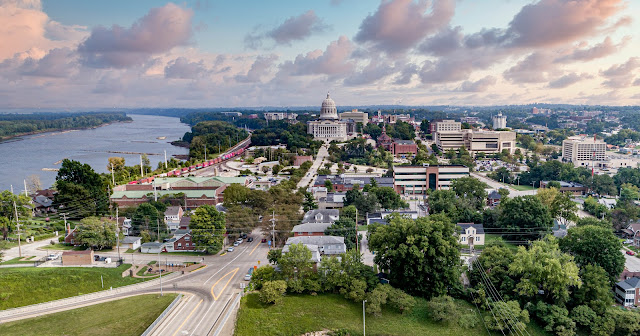
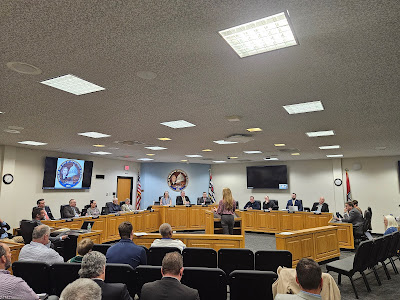


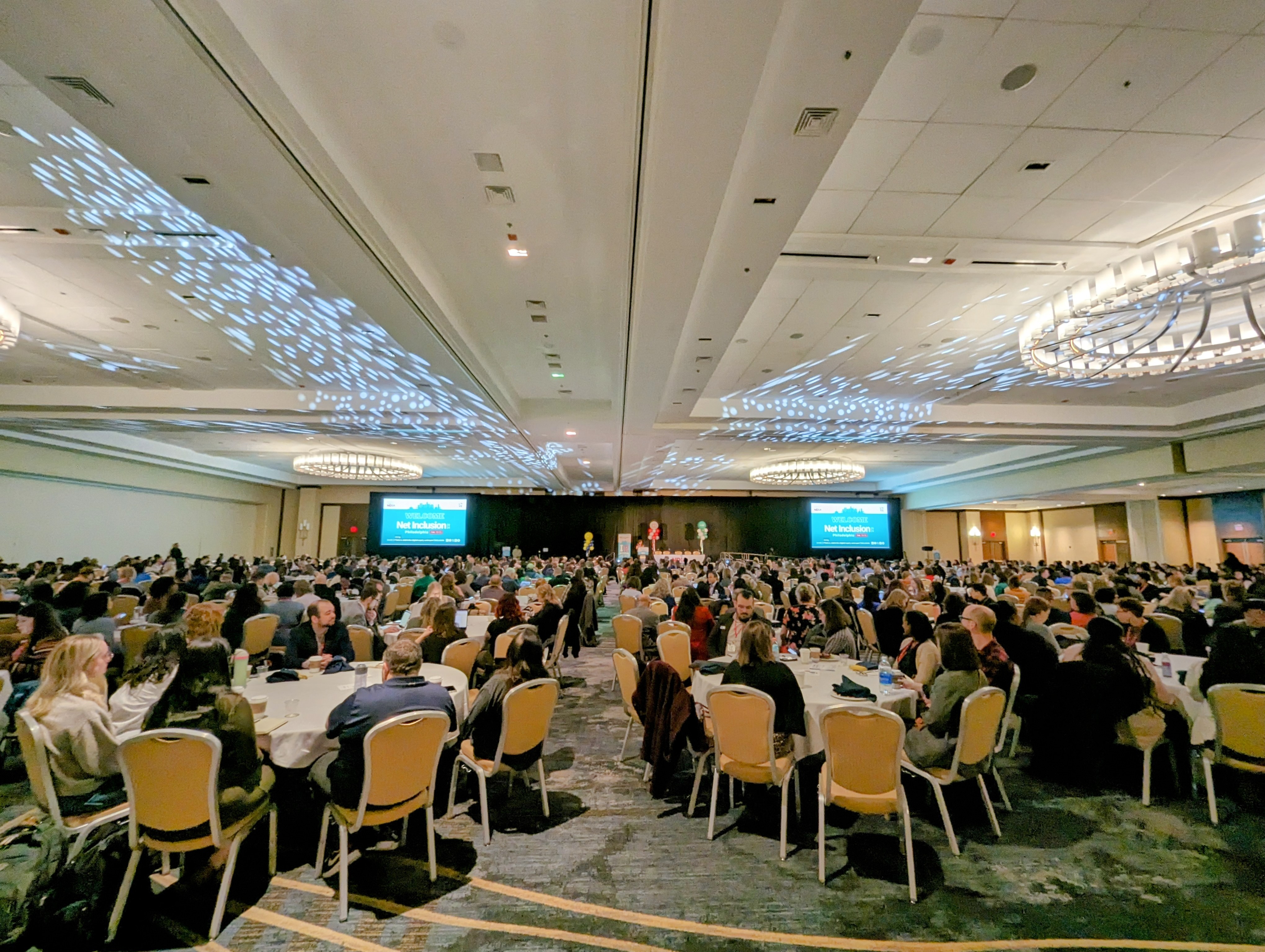

.jpeg)


.jpg)


